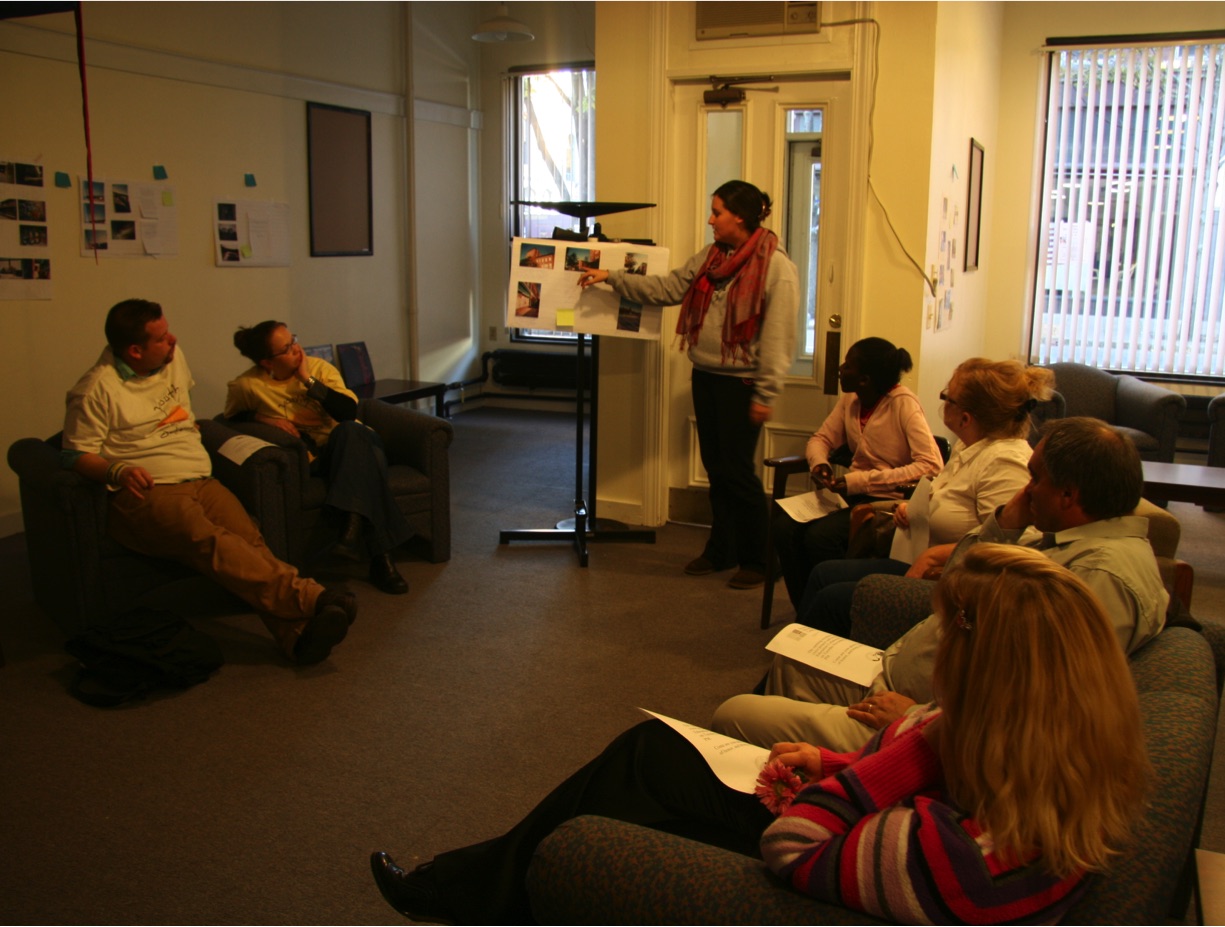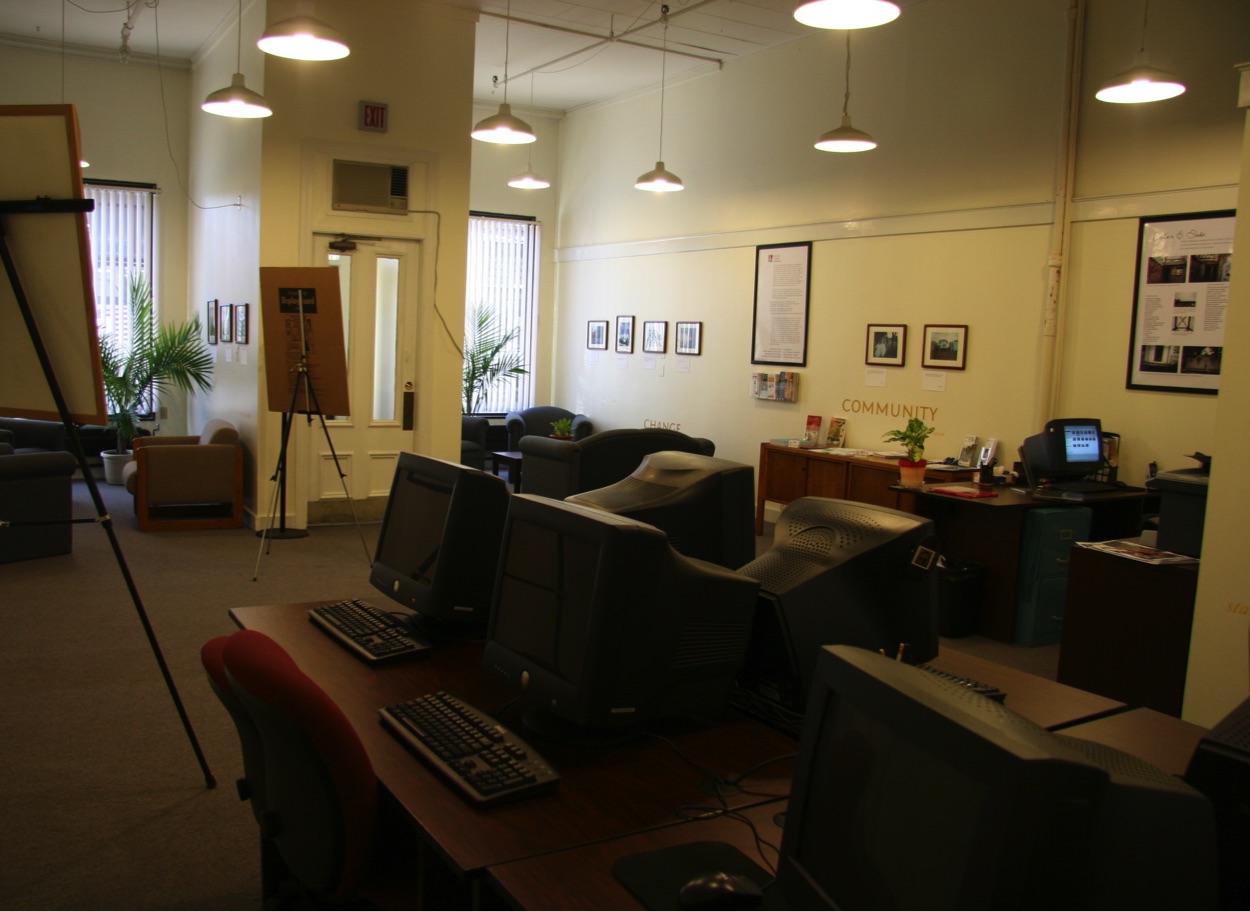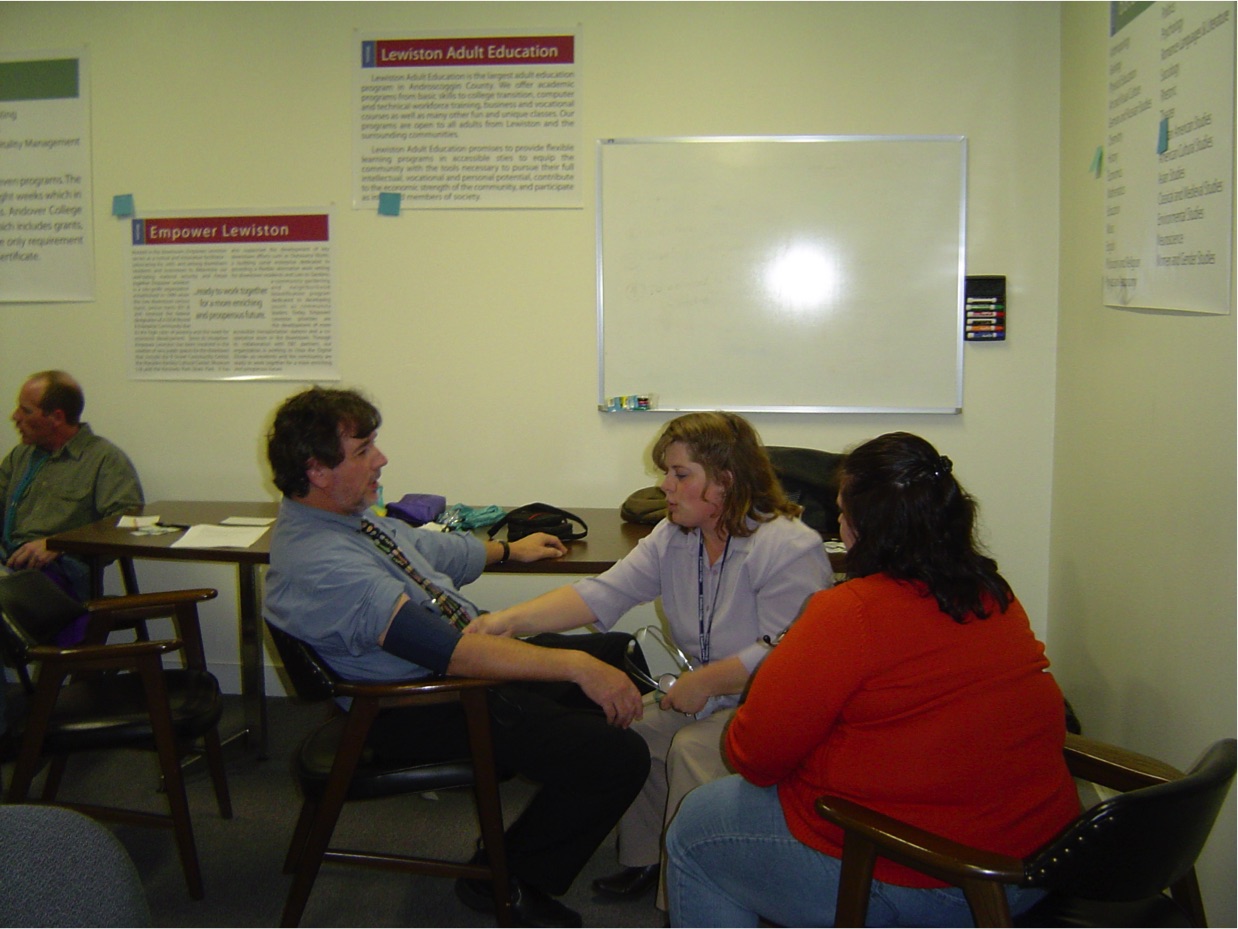DEC: DOWNTOWN EDUCATION COLLABORATIVE
COMMUNITY EDUCATION CENTER SERVING POOR AND IMMIGRANT NEIGHBORHOODS IN LEWISTON, MAINE (2006-2013)
Partners: Bates College, University of Southern Maine Lewiston-Auburn College, Central Maine Community College, Andover College, Lewiston Public Library, Lewiston Adult Education, Empower Lewiston
The Downtown Education Collaborative, or DEC, was an innovative initiative of four higher-education institutions and three community organizations in Lewiston, Maine, to launch a storefront education center dedicated especially to serving Lewiston's low-income and immigrant residents. DEC's founding members were Bates College (a private liberal-arts institution), the University of Southern Maine Lewiston-Auburn College, Central Maine Community College, Andover College (a for-profit college), Lewiston Public Library, Lewiston Adult Education, and Empower Lewiston (a community-development organization). The partnership offered a wide range of academic-support, adult-education, and social service programs, as well as a 'public square' for community discussions, at its Lisbon Street center in downtown Lewiston.
DEC was conceived in late 2005 at a regional Campus Compact conference on academic-community partnerships. Our conference team (comprising members from Empower Lewiston, USM-LA, and Bates) envisioned a community-education space that might bring together stakeholders from all local sectors of higher and adult education. The need was clear. Lewiston was home to the poorest census tracts in the state of Maine, with large populations of Somali immigrants and poor, native-born Mainers. High-school graduation and college enrollment rates were extremely low; there was an urgent need to bolster adult literacy and job skills. An education center might also offer a site for relationship-building and convening in the face of the nativism,and Islamophobia with which the growing Somali community was sometimes confronted.
For two years, a planning group designed and launched DEC. Sherry Russell was hired as Director in the fall of 2007; we leased the downtown center on Lisbon Street in January, 2008. Along the way, the founding partners had to forge governance arrangements and a culture of collaboration that meshed our commitments to collaborative decision-making, community feedback, and disparate resources. Bates and its Harward Center for Community Partnerships brought disproportionate financial and staffing resources to the table, without which the initiative would have languished. After long deliberation, we opted not to launch DEC as an independent nonprofit with a fiduciary board, but rather to place it under the aegis of Bates College. Sherry Russell was a Bates employee; the college signed the Lisbon Street lease. At the same time, all the stakeholders committed themselves to a 'horizontal' governance system in which strategic and programming decisions were approved by consensus
Guided by Sherry's skilled leadership, DEC had remarkable success in its five years of activity (2008-2013). The Lisbon Street center offered academic support for middle- and high-schoolers five afternoons a week, staffed by volunteer tutors from the member colleges. USM-LA students helped to research a community food survey. Andover students gave blood-pressure clinics and computer workshops in which neighborhood adults could enhance their digital skills. In the summer, the computer lab hosted digital storytelling camps for local teens. DEC launched a "PhotoVoice" project that provided disposable cameras to local residents, asking them to document the community as they saw it and to co-curate a photographic exhibition at the center. A graphic-design class from Central Maine Community College created the DEC logo. And teams of students from all four colleges co-authored a guide to "the colleges of the Androscoggin," aimed at encouraging college-going among local teens and adults. Indeed one of DEC's signal successes was its capacity to forge student community across differences of background and academic institution.
DEC's intersectoral, place-based collaboration represented a cutting-edge model of civic engagement and community development. Many of us--not only Sherry Russell, but also USM-LA professor Michelle Vasquez-Jacobus, Harward Center staffer Holly Lasagna, and others--were invited to present about it at national meetings. Yet DEC's extramural logic was also a problem: it enjoyed only lukewarm support from the leadership of its member colleges. Bates would not commit operating resources to the DEC budget; programming and staffing were funded by soft-money. For five years, Sherry Russell and the Harward Center did a valiant job of supporting DEC, but in the wake of the national recession, it was forced to close its doors in the spring of 2013.
Michelle Vasquez-Jacobus, Maryli Tiemann, and Erin Reed offer a thoughtful, critical account of DEC in this article, published in Metropolitan Universities Journal (2011).
Return to Past Projects.



